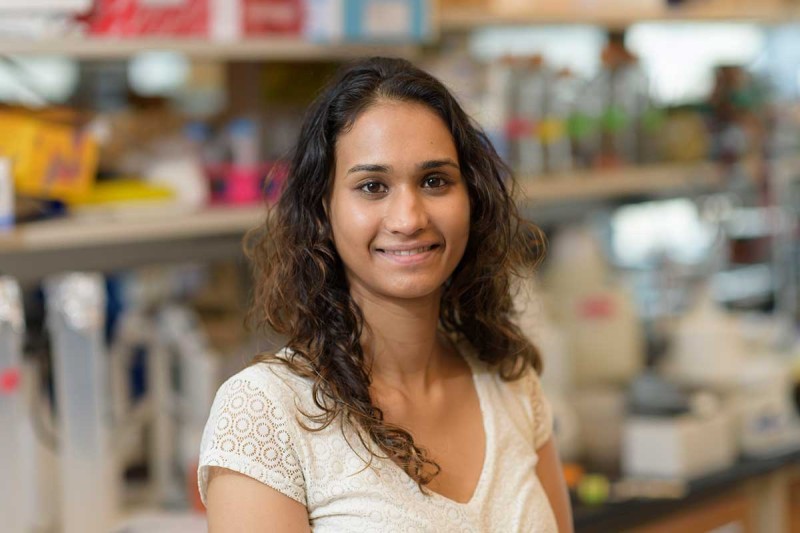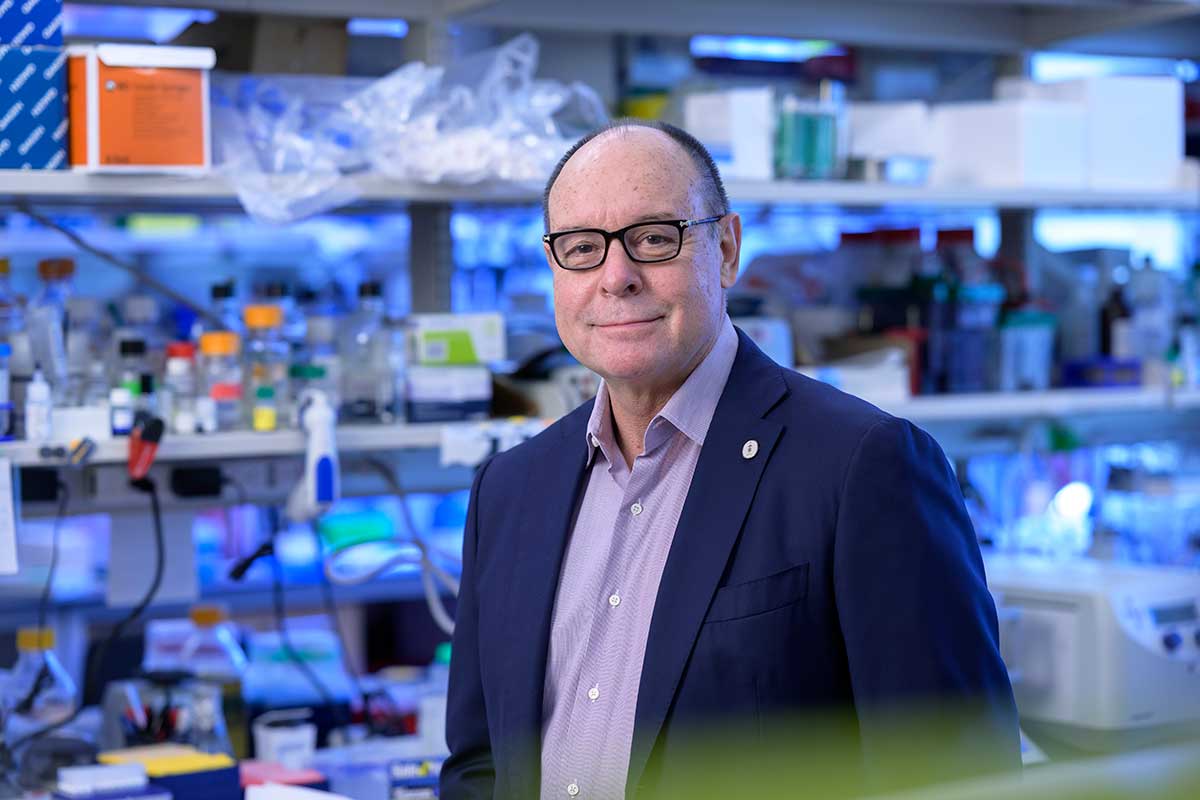
The idea came to Swathi Iyer on the subway, while headed to a Broadway show: The best way to explain brain cancer’s need for cholesterol is to liken it to an addiction. And the processes that regulate cholesterol activity present in normal brain cells are like the local police, keeping everything in good order. Tumors, in turn, act like a cartel, compromising the cops and hoarding cholesterol to fuel their runaway growth.

Dr. Iyer, a postdoctoral researcher in the lab of cancer biologist Luis Parada at the Sloan Kettering Institute, and her husband Harold Elias — a physician-scientist in another of the institute’s labs — had been kicking around possible analogies to explain her research to nonscientists for her presentation at the annual Memorial Sloan Kettering Cancer Center (MSK) Postdoc Slam.
There, Dr. Iyer would have just a single slide and three short minutes to convey the research project she has been leading. Even pointing at your slide is not allowed, she says — they must be self-explanatory.
“The competition is a wonderful training opportunity,” says Dr. Iyer, whom the judges crowned the 2022 winner. “Graduate students and postdocs don’t always get a lot of training in how to communicate their work to the general public, patients, or investors. Being a scientist is not just about being in a closed room with your microscope working on experiments — it’s important to be able to share your work and its potential impact with a broader audience.”
In this case, the research team screened some 200,000 chemical compounds before identifying one that may offer a novel therapeutic strategy against glioblastoma multiforme (GBM) — an aggressive type of brain cancer with a five-year survival rate stuck in the single digits — as well as other types of cancer.
“So, we identified this compound, which we call Gichol — for inhibitor of cholesterol in GBM — and it acts like the FBI when the local authorities have been hijacked by cancer,” Dr. Iyer explains. “It swoops in and frees up the local police to do their job again, draining the accumulated cholesterol from the tumor cell. A GBM cell that has become addicted to this cholesterol cannot withstand this draining process and will die.”
The research, which Dr. Iyer hopes to see published in the coming year, is continuing in genetically engineered mouse models and experiments using patient-derived tumors obtained through a collaboration with MSK’s Brain Tumor Center.
Cancer metabolism, the study of how cancer cells obtain and hoard nutrients, is a growing sub-field within cancer research, with labs around the world investigating new ways to starve cancer and halt its growth without harming normal cells (since normal cells’ demands for nutrients don’t match what a cancer cell needs), or to make tumors more vulnerable to therapies.
There’s still a long way to go before the group’s new discoveries about GBM might be ready for a human clinical trial, Dr. Iyer notes. Optimizing and improving initial compounds to turn them into safe, effective drugs can take years.
For Dr. Iyer, the first biologist in a family of engineers, the competition aspect of the Postdoc Slam was far less important than the mentoring and feedback she and the other postdocs received along the way, helping them refine their communication and presentation skills.
“It’s not something that’s offered at every institution,” she says.
Communication was also an important aspect of the path that led her to study genetics and biology — first in India, where she is from, and later in the U.S., where she ultimately earned her PhD in oncology and cancer biology from the University of Kansas Medical Center before joining MSK in 2017.
When Dr. Iyer was a preteen, one of her grandmothers developed uterine cancer.
“It was definitely a life-changing event for me,” she recalls. “There were no biologists in the family, and it was hard for all of us to understand what was going on with her. Her tumor metastasized, and I just remember seeing her suffer — I told myself that I wanted to be better informed to be able to help my family through something like this. At that time, people didn’t just go on Google and find information; you had to trust your doctor.”
The other aspect of biology that drew her to research was the opportunity for continuous learning to match her boundless curiosity.
She points to a favorite quote from pioneering scientist Marie Curie: If I see anything vital around me, it is precisely that spirit of adventure, which seems indestructible and is akin to curiosity.
“I love the fact that in biology, the quest never ends,” Dr. Iyer says. “If I make a hypothesis and it works, that’s great. And if it doesn’t work, it doesn’t mean you’ve failed; it’s an opportunity to modify and refine your hypothesis — an opportunity to learn and grow.”
